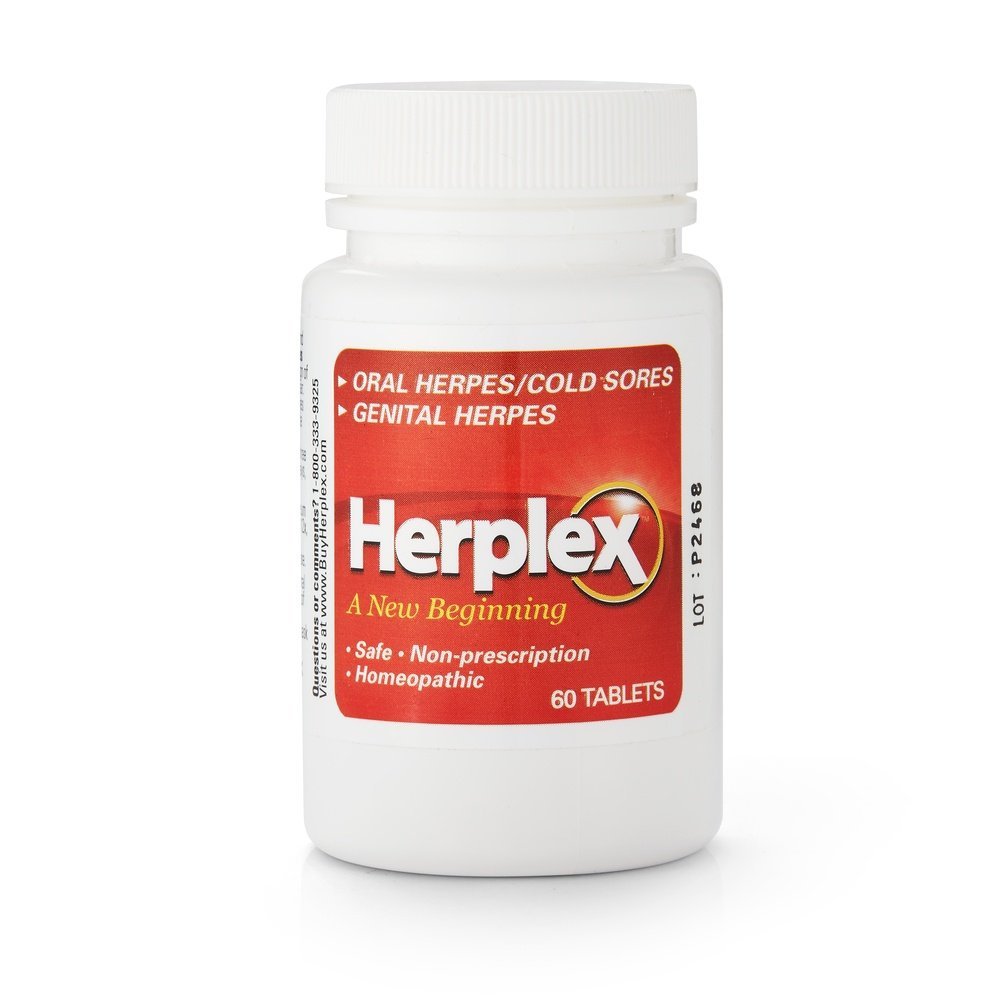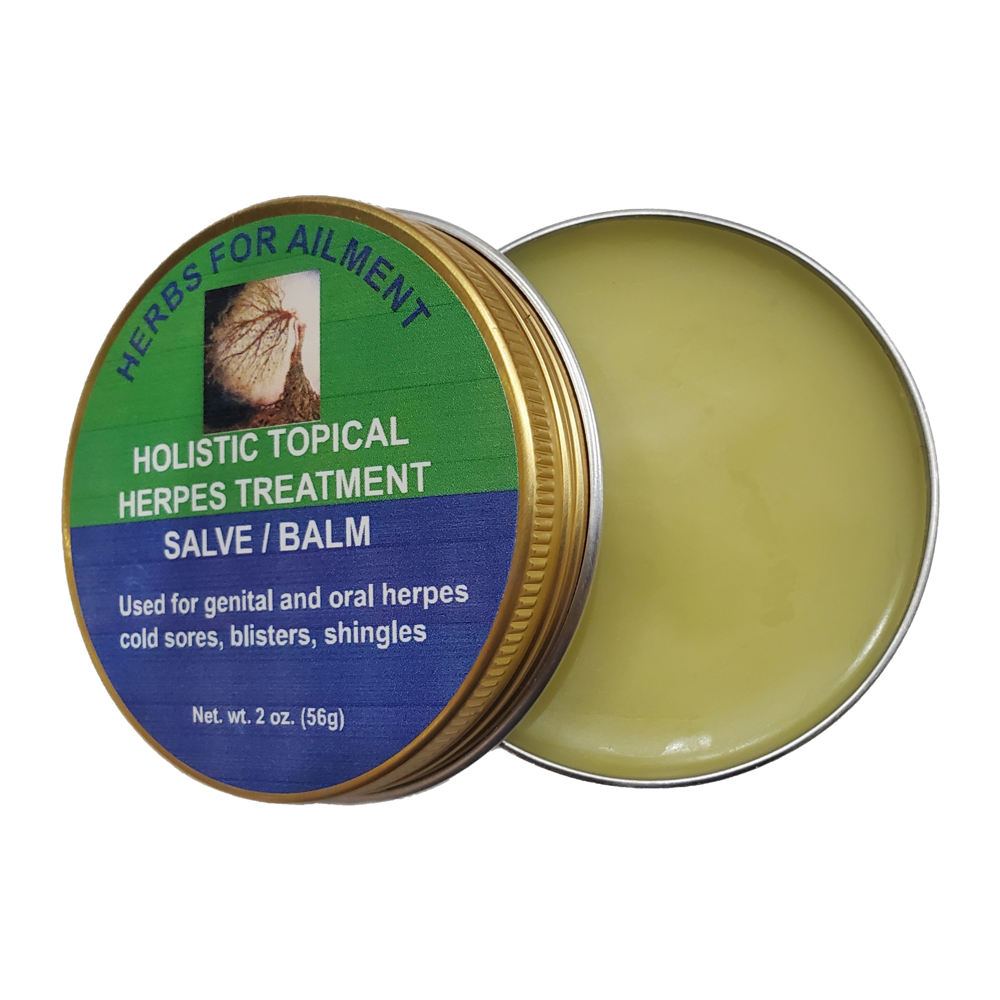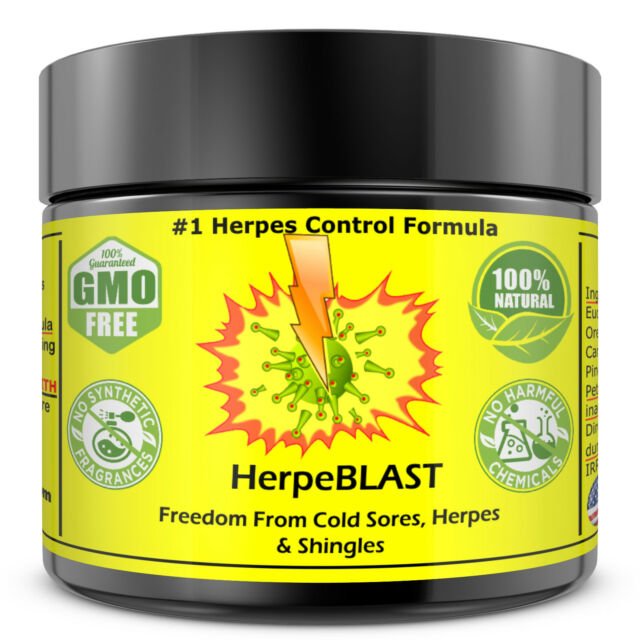Risks And Side Effects
The three main treatments for herpes acyclovir, famciclovir, and valacyclovir are all FDA approved, though there are side effects and interactions to be aware of.
Common side effects of these antiviral medications include headaches and nausea. Famciclovir can cause dizziness or sleepiness, and confusion is mainly seen in older adults.
Acyclovir and valacyclovir, which are very similar to each other, can cause your kidneys to stop working. If you have kidney issues, your doctor may prescribe a lower dose. These medications can interact with other medications, such as nonsteroidal anti-inflammatory drugs like ibuprofen. This may weaken kidney function.
How Can I Prevent Herpes Outbreaks
If you have lots of herpes outbreaks, your doctor may tell you to take medicine every day this is called suppressive therapy. It can help prevent future herpes outbreaks, and lower your chances of giving herpes to your partners.
Whether or not you take medicine to treat herpes, taking care of yourself by eating healthy foods, getting enough sleep, and avoiding stress might help keep future outbreaks from popping up.
No one knows for sure what triggers genital herpes outbreaks. Other infections, surgery, sex, your period, skin irritations, and stress may cause outbreaks. Sunburns, injuries to your lips, or other infections can cause oral herpes flare-ups. Try to avoid getting sunburned if you have oral herpes.
Genital herpes outbreaks usually happen less often and become shorter and weaker after a few years whether or not you get treated.
Side Effects And Follow
Side effects with these herpes drugs are considered mild, and health experts believe these drugs are safe in the long term. Acyclovir is the oldest of the three, and its safety has been documented in people taking suppressive therapy for several years.
People taking suppressive therapy should see their doctor at least once a year to decide if they should continue. You may find taking the pills every day to be inconvenient, the drugs may not work for you, or you may naturally have fewer outbreaks as time goes on. Your doctor can help you make treatment choices to suit your needs.
Recommended Reading: Does Herpes Make You Tired
Suppressive Therapy For Recurrent Hsv
Suppressive therapy reduces frequency of genital herpes recurrences by 70%80% among patients who have frequent recurrences . Persons receiving such therapy often report having experienced no symptomatic outbreaks. Suppressive therapy also is effective for patients with less frequent recurrences. Long-term safety and efficacy have been documented among patients receiving daily acyclovir, valacyclovir, and famciclovir . Quality of life is improved for many patients with frequent recurrences who receive suppressive therapy rather than episodic treatment . Providers should discuss with patients on an annual basis whether they want to continue suppressive therapy because frequency of genital HSV-2 recurrence diminishes over time for many persons. However, neither treatment discontinuation nor laboratory monitoring is necessary because adverse events and development of HSV antiviral resistance related to long-term antiviral use are uncommon.
Valacyclovir 500 mg orally 2 times/day for 3 daysOR
Valacyclovir 1 gm orally once daily for 5 days
*Acyclovir 400 mg orally 3 times/day is also effective, but are not recommended because of frequency of dosing.
Stages Of Herpes Outbreaks

Like any other infection, every case is different. The duration of a herpes outbreak will depend on factors such as:
- Your individual immune system
- How many outbreaks youâve had in the past
- Treatment history
Keep in mind that no matter your history or treatment, thereâs help.
The stages of a herpes outbreak can last between two and 14 days and can be broken down into stages:
If you have frequent recurrences of genital herpes
Taking medication every day for many months will stop recurrences completely, or their frequency and severity are greatly reduced. This is called suppressive or prophylactic treatment. Generally, after a year, it is recommended you stop the medication for a few months to see if recurrences have become less frequent. This type of continuous treatment can be repeated if necessary. This type of daily treatment tends to be prescribed if you have frequent or severe recurrences of genital herpes more than six times per year.
Suppressive treatment is valaciclovir 500mg taken daily. This may be increased to 500mg taken twice daily on individual basis of clinical presentation and/or if you are having breakthrough recurrences on 500mg daily. The alternative is oral aciclovir 400mg taken twice daily .
A Doctor can give you a prescription every 3 months for up to 12 months and ongoing if your recurrences are still frequent.
Effectiveness is optimised if taken regularly as prescribed.
For special events
You May Like: How To Treat Constipation Caused By Herpes
What Are The Symptoms Of Herpes Simplex
Many people with the infection never experience any herpes symptoms. If you do notice symptoms, youll experience them differently depending on whether youre having your first herpes outbreak or a repeat outbreak. Recurring symptoms are usually milder than the first outbreak. Symptoms dont last as long with later outbreaks. Some people may only have one or two outbreaks during their lifetime. Others may have as many as four or five outbreaks a year.
People who do have herpes symptoms may experience:
- Cold sores around their lips, mouth or tongue. They may look crusty or like fluid-filled blisters.
- Tingling, itching or burning.
What Happens If You Leave Herpes Untreated
According to the CDC , genital herpes can lead to painful sores, which can be worse in people with weaker immune systems. A person may also spread the virus to other parts of their body.
In pregnant people, herpes may lead to miscarriage or make early delivery more likely. A person can also pass herpes on to their baby before or during birth. This can cause neonatal herpes, which can be fatal.
Pregnant people with herpes may need to receive herpes treatment toward the end of their pregnancy and have a cesarean delivery if they have herpes symptoms when they give birth.
It is important that people speak with a doctor about treating herpes.
Read Also: How Long For Genital Herpes To Go Away
To Use Buccal Acyclovir Follow These Steps:
If the delayed-release buccal tablet comes off within the first 6 hours of application, reapply the same tablet. If it still will not stick, then apply a new tablet. If you accidentally swallow the tablet within the first 6 hours of application, drink a glass of water and place a new tablet on your gum. If the tablet falls off or is swallowed 6 or more hours after application, do not apply a new tablet until your next regular time.
How To Prevent Herpes
Its advised to avoid sexual and oral contact with someone who is currently experiencing a herpes outbreak, but its also important to remember that herpes is transmittable even when it is dormant. The risk during latent periods is lower, but its not zero.
While barrier methods can reduce your risk of contracting or transmitting an STI, there is still a risk that you could get herpes during sexual contact if youre with someone who has it.
If you develop herpes, there are certain precautions you can take to reduce transmission to others. These include:
- using barriers, like condoms and dental dams, during sex
- avoiding sexual contact or kissing while youre having a herpes outbreak
- taking medications, such as those listed above these may be associated with lower risk of herpes transmission, though its best to speak with your doctor
If you do develop herpes, inform your sexual partner.
Its important to tell your doctor if youre pregnant and develop herpes, as the virus can spread to the infant during vaginal delivery. Herpes can be dangerous for newborns. Inform your doctor as soon as possible so that they can help you plan and take precautions to help prevent transmission to your baby.
You May Like: How Can You Prevent Herpes
Keep The Area Clean And Dry
Its important to keep dry any areas affected by genital herpes sores. Moisture triggers irritation and can make outbreaks even worse. Try drying outbreaks with a hairdryer on low heat settings instead of a towel. It also helps to wear cotton underwear, since cotton is gentle and absorbs moisture much better than synthetic fabrics.
How Should This Medicine Be Used
Acyclovir comes as a tablet, a capsule, and a suspension to take by mouth. It also comes as a delayed-release buccal tablet to apply to the upper gum of the mouth. The tablets, capsules, and suspension are usually taken with or without food two to five times a day for 5 to 10 days, starting as soon as possible after your symptoms begin. When acyclovir is used to prevent outbreaks of genital herpes, it is usually taken two to five times a day for up to 12 months. The delayed-release buccal tablet is usually applied with a dry finger as a one-time dose within 1 hour after itching, redness, burning or tingling cold sore symptoms begin but before the cold sore appears. Take or use acyclovir at around the same time every day. Follow the directions on your prescription label carefully, and ask your doctor or pharmacist to explain any part you do not understand. Take or use acyclovir exactly as directed. Do not take or use more or less of it or take it more often or for a longer time than prescribed by your doctor.
Do not chew, crush, suck, or swallow the delayed-release buccal tablets. Drink plenty of liquids, if you have a dry mouth while using the delayed-release buccal tablets.
Donât Miss: Can You Treat Herpes At Home
Don’t Miss: Otc Herpes Cream At Walgreens
Understanding Herpes With H Hunter Handsfield Md
Herpes expert H. Hunter Handsfield, MD, explains the basics about genital herpes, including the difference between genital HSV-1 and HSV-2 infection, testing options and the importance of knowing virus type, and the three-prong strategy for prevention. See more herpes videos at sexualhealthTV.com.
Have a question about herpes youd like Dr. Handsfield or our other experts to answer? Visit our Ask the Experts page to learn how.
What You Need To Know

- Fifty percent to 80 percent of U.S. adults have oral herpes.
- Oral herpes can be spread through intimate contact with someone who is infected.
- Oral herpes can be difficult to diagnose. Often confused with many other infections, it can only be confirmed with a virus culture called PCR, blood test or biopsy. PCR is the preferred test for diagnosing herpes infections.
- The best treatment for oral herpes is antiviral oral medication. Symptomatic treatment may include antiviral ointment, over-the-counter topical anesthetics or over-the-counter anti-inflammatory agents.
Whether you call it a cold sore or a fever blister, oral herpes is a common infection of the mouth area that is caused by herpes simplex virus type 1 . Fifty percent to 80 percent of U.S. adults have oral herpes. According to the National Institutes of Health, about 90 percent of adults have been exposed to the virus by age 50.
Once infected, a person will have herpes simplex virus for the rest of his or her life. When inactive, the virus lies dormant in a group of nerve cells. While some people never develop any symptoms from the virus, others will have periodic outbreaks of infections.
Read Also: How To Stop Genital Herpes Recurrence
Binding And Entry Inhibition
Other antiviral drugs act on the host cell to inhibit the virus . The advantage to this approach is that resistance to the drug is less likely to appear, especially because these drugs are not subject to TK activation and ACV resistance mutations in that locus while random mutations occur in both viruses and hosts, the mutation rate in viruses is much higher than it is in host cells . On the other hand, targeting a host cell function may lead to higher toxicity, potentially limiting therapeutic use to only viral strains that are resistant to safer therapies.
n-Docosanol.
Acyclovir May Cause Side Effects Tell Your Doctor If Any Of These Symptoms Are Severe Or Do Not Go Away:
- numbness, burning, or tingling in the arms or legs
- temporary inability to move parts of your body
- shaking of a part of your body that you cannot control
- loss of consciousness
Acyclovir may cause other side effects. Call your doctor if you have any unusual problems while you are taking or using this medication.
If you experience a serious side effect, you or your doctor may send a report to the Food and Drug Administration’s MedWatch Adverse Event Reporting program online or by phone .
Recommended Reading: Herpes Over The Counter Treatment
How Do Dermatologists Treat Herpes Simplex
There is no cure for herpes simplex. The good news is that sores often clear without treatment. Many people choose to treat herpes simplex because treatment can relieve symptoms and shorten an outbreak.
Most people are treated with an antiviral medicine. An antiviral cream or ointment can relieve the burning, itching, or tingling. An antiviral medicine that is oral or intravenous can shorten an outbreak of herpes.
Prescription antiviral medicines approved for the treatment of both types of herpes simplex include:
Taken daily, these medicines can lessen the severity and frequency of outbreaks. They also can help prevent infected people from spreading the virus.
Complementary And Alternative Medicine
Some people use natural therapies to treat herpes, either on their own or to support standard medical care. The research supporting their use is generally weak, with little evidence that they can reduce either the severity or duration of an outbreak. Even so, many people swear by their effectiveness and consider them a vital part of managing herpes outbreaks.
Complementary and alternative therapies sometimes used to treat herpes include:
- Propolis: This is a sticky substance produced by bees that may help speed the healing of genital herpes. A 2017 study found that people who used propolis ointment experienced better healing by the 10th day of treatment compared to those who used a sham ointment.
- Algae extract: Lab studies suggest that algae extract can inhibit the growth of HSV-2 in test tubes. Whether it can do so in humans has yet to be proven.
- Acupuncture: A 2022 review of research on the use of acupuncture to treat symptoms of herpes zoster concluded that acupuncture had a good effect on , quickly reduced patient pain, shortened the course of the treatment. While this suggests that acupuncture may be useful in easing genital herpes pain, this has yet to be proven.
Don’t Miss: How Does Someone Get Herpes
Why Is This Medication Prescribed
Acyclovir is used to decrease pain and speed the healing of sores or blisters in people who have varicella , herpes zoster , and first-time or repeat outbreaks of genital herpes . Acyclovir is also sometimes used to prevent outbreaks of genital herpes in people who are infected with the virus. Acyclovir is in a class of antiviral medications called synthetic nucleoside analogues. It works by stopping the spread of the herpes virus in the body. Acyclovir will not cure genital herpes and may not stop the spread of genital herpes to other people.
Valtrex For Genital Herpes
Even if youre taking Valtrex, its still possible to have an outbreak. If youre taking Valtrex for recurrent genital herpes and have an outbreak, its important to avoid sexual contact with your partner to keep the virus from spreading to them. Even if youre not experiencing an outbreak, using condoms is a good idea to prevent transmission.
Also, if youre wondering if your uninfected partner can take Valtrex to avoid becoming affected, the answer is no. Someone without herpes simplex virus shouldnt take medication for something they dont have. This could cause serious side effects or health problems.
Also Check: Does Herpes Medicine Stop Outbreaks
What Other Information Should I Know
Keep all appointments with your doctor and the laboratory. Your doctor may order certain lab tests to check your response to acyclovir.
Do not let anyone else take or use your medication. Ask your pharmacist any questions you have about refilling your prescription.
It is important for you to keep a written list of all of the prescription and nonprescription medicines you are taking, as well as any products such as vitamins, minerals, or other dietary supplements. You should bring this list with you each time you visit a doctor or if you are admitted to a hospital. It is also important information to carry with you in case of emergencies.
What Are The Treatment Options For Genital Herpes

Treatment with antiviral medication is a good idea the very first time people have an outbreak of genital herpes. Later outbreaks are often milder, and then medication isn’t always needed. Preventive treatment may be considered if the outbreaks are frequent.
Genital herpes may clear up on its own. But the symptoms are often more severe the first time you have an outbreak. Most people then use antiviral medication to relieve the symptoms and prevent complications. These medications include aciclovir, famciclovir and valaciclovir.
Don’t Miss: What To Know About Dating Someone With Herpes